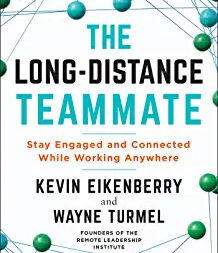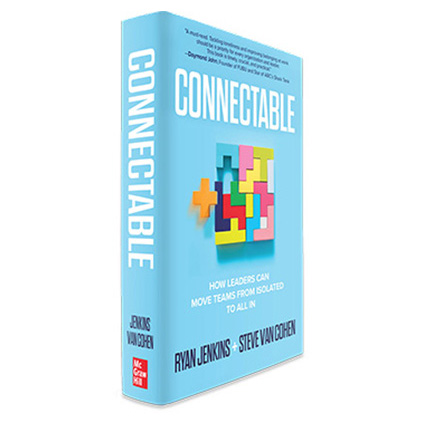I am very pleased that my friend and colleague, Kevin Eikenberry offered to write a guest blog post this week. Kevin is the co-author with Wayne Turmel of the terrific and timely new book, The Long Distance Teammate. The two have collaborated before on another one of my favorites, The Long Distance Leader.
Many introverts struggle with networking. They know it is essential for career success but are loathe to jump in for so many reasons. This piece illustrates some ways in which we all – introverts and extroverts – can achieve visibility and learn and grow in the process.
Many things change when we begin working from home. One of the questions I get asked is, “When I don’t run into people in the office or at events, how am I supposed to network?” This question is even more relevant in a world of viruses and lockdowns. Whether you like networking or not, if you want to advance your career and reach your goals, you must meet, interact, and be known by others. The question is how do we do that now?
The short answer is ethical visibility. Let’s talk about what that means and how to do it both inside your organization and externally.
What is Ethical Visibility?
Ethical visibility is making sure people understand your role and experience, but only in the context of team goals and team success. It is all about the team and team success. It is supportive and positive, and it must be appropriate based on your team’s culture. This is a balancing act that is even harder to achieve when you are working at a distance from others.
Exhibiting Ethical Visibility With Your Boss
While you are working at home alone, remember that your boss has a whole team to be thinking about – he or she isn’t spending all their time thinking about you. There is nothing wrong with that, but it does mean you need to be more proactive about how you remain top of mind when the organization might need someone in a new role. Here are a few ways you can do this effectively:
- Participate in meetings. I mean really engage and participate in ways that move the agenda forward.
- Offer to share what you know with others. Done with the right intention and focus, this can be helpful to your boss and the whole team.
- Volunteer for projects and assignments. This is not only helpful to the team and raises your visibility, but is a form of professional development too.
- Own your development. Don’t just wait for the boos to suggest a course or learning opportunity, be proactive in finding ways to build your skills and knowledge. Which leads to the next set of ideas…
External Networking
One of the problems with traditional networking (and one of the reasons so many people don’t like it) is that it feels very “me” focused. If you have ever been to a networking event, you know how many people try to dominate conversations, pump up themselves, and treat it like a game of “whoever gives out the most business cars wins.” Visibility maybe, but ethical? Not quite so much.
While we aren’t going to events, we can still connect with others and build our network. You can still do that by reaching out to people you admire, use LinkedIn more and differently, and make more introductions. While there are many ways to make all of these ideas work, here are a couple of things to keep in mind.
- Go first, but focus on others. If there is someone you would like to meet, be connected to or have a conversation with, don’t be afraid to seek them out. But do it in a way that is helpful to them. If you reach out (via LinkedIn, email, or however) talk about why you value them and give them some specific positive feedback, rather than focusing on yourself.
- Think about relationships not results. Don’t reach out and ask for something – reach out and offer to help and see how you can serve them. This is the opposite of what most people do and will immediately set you apart from the crowd.
- Reach out to experts. If you read a book that you liked, took an online course, watched a YouTube video, or read a blog post, reach out to the author to say thank you and tell them why you found their content so valuable. When people do that with me, I am typically very receptive to having a conversation or seeing how else I can help them. It has never been easier to do this than now.
Networking needs to be different than it used to be – but it can still happen when you think differently too. Applying these ideas will get you great results, and might even leave you enjoying networking.
About the author
Kevin Eikenberry is a recognized world expert on leadership development and leader of The Kevin Eikenberry Group. He has twice been named by Inc.com as one of the top 100 Leadership/Management Experts in the World. He is the author, co-author or a contributing author to 20 books, including the latest collaboration with Wayne Turmel, The Long-Distance Teammate: Stay Engaged and Connected While Working Anywhere.





